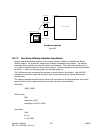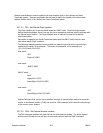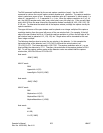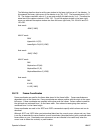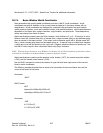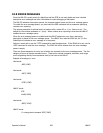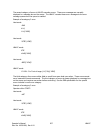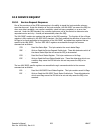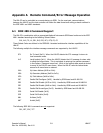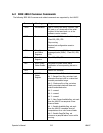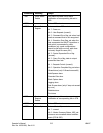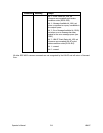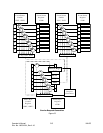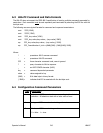10.9 SERVICE REQUEST
10.9.1 Service Request Response
One of the provisions of the GPIB hardware bus is the ability to signal the host controller when an
event has occurred. Under the direction of the host controller, the LBA-300PC can assert the SRQ line
when new data is available, new results is available, a task has been completed, or an error has
occurred. Under the IEEE standard, the controller performs a poll of the devices to determine who
requested service and why. A serial poll automatically clears the SRQ.
The LBA-300PC contains six registers that pertain to the SRQ operation. The function of four of these
registers is fully explained in the IEEE 488.2 standard. We have modified the definition of some of the
bit flags to be more applicable to the operation of the LBA-300PC, and added two registers that are
specific to the LBA-300PC. The four IEEE 488.2 registers are accessible through the common
command set as follows:
STB - Read the Status Byte. This byte contains the event related flags.
SRE - Write or Read the Service Request Enable byte. These bits determine which of
the above Status Byte bits will cause the SRQ to be asserted.
ESR - Read the Event Status Register. This byte contains error bit flags.
ESE - Write or Read the Event Status Enable byte. These bits determine which error
condition flags cause the ESB bit to be set and may cause the SRQ to be
asserted
The two LBA-300PC specific registers are accessible through commands similar to the common
command set as follows:
ELR - Read the LBA-300PC Event Status Register. This byte contains event bit flags.
ELE - Write or Read the LBA-300PC Event Status Enable byte. These bits determine
which event flags cause the ELB bit to be set and may cause the SRQ to be
asserted.
Operator’s Manual LBA-PC
Doc. No. 10654-001, Rev 4.10
209



